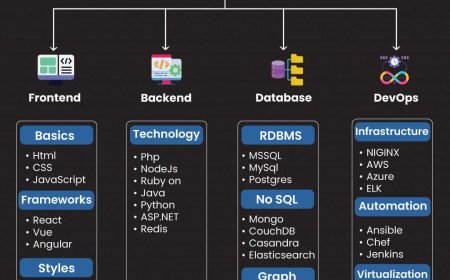Top 5 Pivotal Moments That Changed the Game in Pawn to King’s End
Discover the top 5 game-changing moments in Pawn to King’s End that redefined strategy, shifted power, and shocked players with unexpected twists.

In the realm of literary thrillers, few books capture the tension between strategy, sacrifice, and transformation quite like Pawn to King's End. The novel, written with unrelenting pace and deep philosophical undertones, offers more than just a game of political or personal chessits a layered narrative where each move alters destinies and challenges the moral compass of the characters. The books unique strength lies in its ability to make even the smallest choices feel monumental, echoing the deliberate progression of a pawn across a volatile board.
Below are the top five pivotal moments in the story that truly changed the game for its central charactersand for readers alike.
. First Betrayal: When Loyalty Cracks
One of the earliest turning points in Pawn to King's End occurs when the protagonist, Jonathan Arquette, discovers that his longtime confidant and mentor, Harold Lennox, has been leaking sensitive intelligence to an unknown third party. Up until this moment, Jonathans world is driven by idealism and loyalty, clinging to the belief that those who wear the same badge are fighting for the same cause.
The revelation shatters this illusion. But more significantly, it alters Jonathans approach to the mission at hand. Rather than trusting the hierarchy and depending on institutional safety nets, he begins relying on his own instinctsa transition that serves as the groundwork for the metamorphosis that follows. In the larger metaphor of the chessboard, this betrayal marks the moment when the pawn stops trusting the hand that moves it and begins plotting its own trajectory forward.
. Munich Sequence Game Within a Game
Set in the cold, precise environment of a chess tournament in Munich, this chapter of the book is both a literal and symbolic centerpiece. Jonathan, now deeper into his mission and entangled with both allies and double agents, uses the tournament as cover to exchange critical information. What makes this sequence pivotal isnt just the espionageits the way the game of chess becomes an analog for life and death decisions.
As Jonathan sits across from an opponent who is also a political assassin, every move on the board mimics the mental chess they're playing in real life. A misstep could mean exposing his identity. A brilliant play could earn him the intel he needs. The dual-layered tensionwhere strategy in fiction and game mechanics intersectmakes this moment unforgettable. More importantly, it reinforces the novels central theme: the endgame isnt always about winning, but surviving with your principles intact.
. Moral Sacrifice: Choosing the Lesser Evil
By the midpoint of the story, Jonathan is forced into a situation that no reader sees comingan ultimatum where he must either expose an innocent to danger or risk the collapse of a mission that could save hundreds. This choice, framed within a 24-hour ticking clock, puts his character to the test in a way no previous challenge has.
He chooses the mission.
This moment is gut-wrenching. It changes not only the way the reader sees Jonathan, but how Jonathan views himself. He begins questioning whether hes still the pawnor has he become something more powerful, and more dangerous? His internal dialogue after the decision echoes throughout the rest of the book, and the consequences of this choice ripple across multiple chapters.
This is where the story truly earns its psychological depth. The novel doesn't shy away from asking hard questions: Can one man carry the weight of necessary evil? What is the price of progress, and who pays it?
. Mask Comes Off Identity Revealed
The fourth pivotal moment unfolds when Jonathans carefully constructed alias is compromised, and his true identity is revealed to both his allies and enemies. Up to this point, much of the narrative tension relies on deception and misdirectionJonathan hiding in plain sight, operating through layers of cover identities and plausible deniability.
When the mask comes off, its not just a narrative deviceits symbolic. The revelation forces all players on the board to realign. Old alliances dissolve, new ones form under duress, and the pace of the novel accelerates. For Jonathan, its a shedding of skin. He no longer operates as a man under the radar but as a figure whose every move is now scrutinized.
This vulnerability elevates the stakes exponentially. With the safety of anonymity gone, Jonathan is now a king under attackexposed, fallible, yet crucial. The metaphor deepens: this is the moment the pawn, having reached the eighth rank, must choose what kind of piece to become.
Endgame Revelation: The True Enemy
No review of Pawn to King's End would be complete without highlighting the final twistthe realization that the true enemy has never been an individual, but a system designed to consume both the innocent and the guilty in the name of control. The climax reframes the entire narrative, forcing readers to look back on every decision, every sacrifice, with a new lens.
This moment of revelation is delivered not with bombast but with chilling calm. It comes during a quiet conversation between Jonathan and a former adversary turned reluctant ally. As the puzzle pieces fall into place, the full architecture of manipulation is laid bare, and the reader sees just how carefully each event has been orchestrated to lead to this conclusion.
Whats most impressive is how the twist doesnt feel forced. Instead, its a logical extension of the novels philosophical backbonethe idea that even the most powerful players are, at times, unaware of the board they're on. In that way, the ending doesn't just surprise; it resonates.
And this is exactly why the Douglas A. Gosselin book Pawn to King's End stands out in the crowded field of modern thrillers. It doesn't rely on conventional plot devices or throwaway twists. Instead, it builds a world where every move, every decision, carries weight, and where character transformation is the true heart of the game.
Final Thoughts
Pawn to King's End is not just a spy novel. It is a meditation on growth, responsibility, and the long road from navet to self-awareness. Through these five pivotal momentseach carefully constructed and thematically richDouglas A. Gosselin crafts a journey that is equal parts suspenseful and introspective.



































